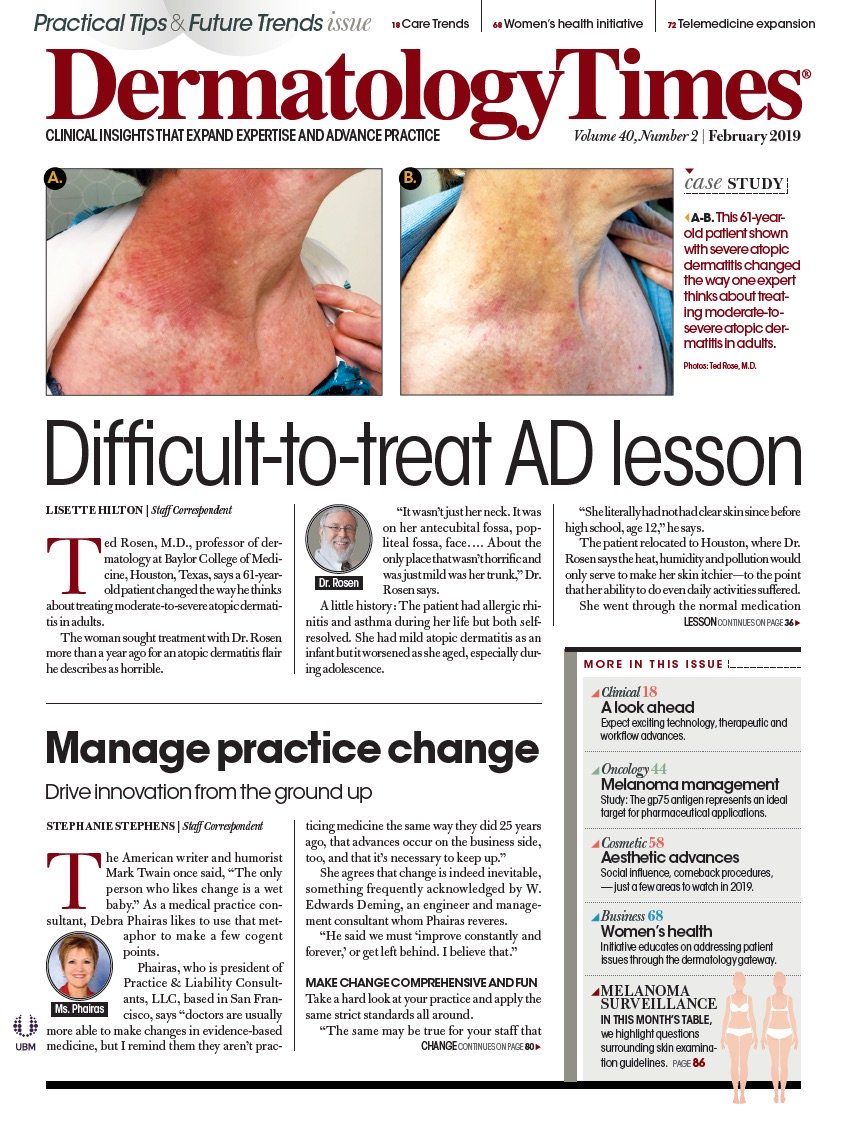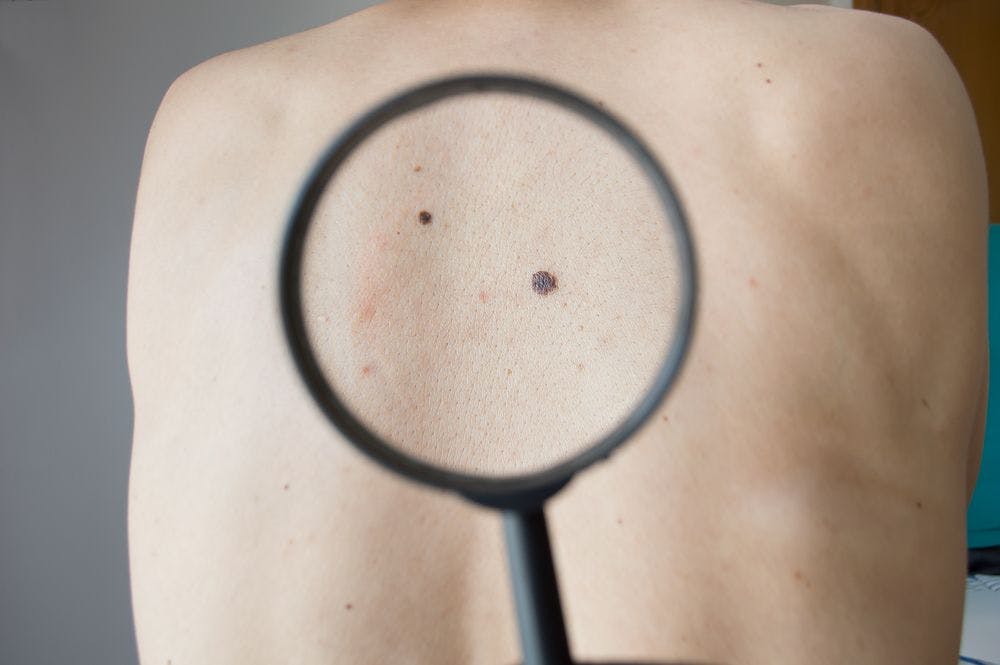- Acne
- Actinic Keratosis
- Aesthetics
- Alopecia
- Atopic Dermatitis
- Buy-and-Bill
- COVID-19
- Case-Based Roundtable
- Chronic Hand Eczema
- Chronic Spontaneous Urticaria
- Drug Watch
- Eczema
- General Dermatology
- Hidradenitis Suppurativa
- Melasma
- NP and PA
- Pediatric Dermatology
- Pigmentary Disorders
- Practice Management
- Precision Medicine and Biologics
- Prurigo Nodularis
- Psoriasis
- Psoriatic Arthritis
- Rare Disease
- Rosacea
- Skin Cancer
- Vitiligo
- Wound Care
Publication
Article
Dermatology Times
A need to expand over-the-counter product knowledge
Author(s):
Do dermatologists possess the knowledge base to effectively use over-the-counter products? Zoe Diana Draelos, M.D. tackles this question and more in this article.
Do dermatologists possess the knowledge base to effectively use over-the-counter products? Zoe Diana Draelos tackles this question and more in this article. (©g-stockstudio/Shutterstock.com)

Dr. Draelos

Dermatologists are experts in skin, hair and nail issues. Traditionally, dermatology textbooks and training have focused on diagnosis and prescription treatment of disease. This is the core of dermatology and should remain the primary goal of all residency programs. However, much new and emerging useful knowledge is present in the area of over-the-counter (OTC) technologies. The high cost of prescription medications has driven many consumers to look for remedies in the OTC drug realm. Further, little attention is focused on skin disease prevention and the maintenance of skin health. These are areas where prescription medication may not be appropriate and OTC products become of primary importance. Do dermatologists possess the knowledge base to effectively use OTC products? I am not sure.
Do dermatologists understand the difference between soaps and syndets and how they might benefit or damage eczematous skin? Do dermatologists understand the difference between a conditioning shampoo and a dandruff shampoo and their differing effects on seborrheic dermatitis? Do dermatologists know whether a lotion containing ceramides or grapeseed oil is better for the prevention of an atopic dermatitis flare? Do dermatologists know which sunscreen formulation is best for rosacea patients?
I am not sure.
OTC products are becoming increasingly complex with enhanced efficacy due to the tremendous explosion in raw materials available for formulation. The simplistic moisturizer made of petrolatum and mineral oil emulsified in water is no more. Moisturizers can be built to reduce transepidermal water loss to various levels, provide viscosities appropriate for various body areas, and deliver a variety of bioidentical materials to the skin surface. The OTC acne market is expanding with great rapidity based on the new small particle benzoyl peroxide that allows better skin coverage with lower concentrations. The Rx to OTC switch of adapalene also created unprecedented efficacy in the nonprescription acne market. Other previously prescription-only acne actives will undoubtedly consider making the switch.
One of the biggest obstacles to expanding the acceptance of review articles and textbook chapters on skin, hair and nail care technologies that are not OTC drugs is the lack of “evidence-based” information. Who is going to do a study to demonstrate that various detergents work? How can you compare 40 different facial moisturizer formulations and determine which one works best? How do you demonstrate which shampoo produces the least amount of dandruff?
Consumers do this every day in the marketplace based on their purchases. A product that does not work does not stay on the shelf for long. Consumers are the scientists and will buy one bottle, but will not buy a second, followed by the store discontinuing the offering. Want to know which products do not work? Look at the clearance aisle in the store!
Further, it is not possible to examine 40 facial moisturizers and determine which one is the best for all. Why are there 40 different facial moisturizers for sale? Because they all work for someone who purchases them. Why are there so many different botanical-containing cosmeceutical formulations? Because they all work for someone who purchases them. There is no one size fits all when it comes to skin, hair and nail care. Customization is the secret to success. With this in mind, evidence-based approaches do not work. Instead, dermatologists need to understand the mechanism of action for these ingredients.
I believe there is a need in dermatology training and beyond into practice to expand the understanding of OTC products. There should be at least one day in every training program devoted to OTC technologies. My brief survey indicates that at least 30% of patients seen in an average dermatology practice will ask one question about an OTC product or issue. The dermatologist should be confident in answering the question quickly and accurately. These common “door handle” questions require an expanded OTC understanding.

Newsletter
Like what you’re reading? Subscribe to Dermatology Times for weekly updates on therapies, innovations, and real-world practice tips.



























